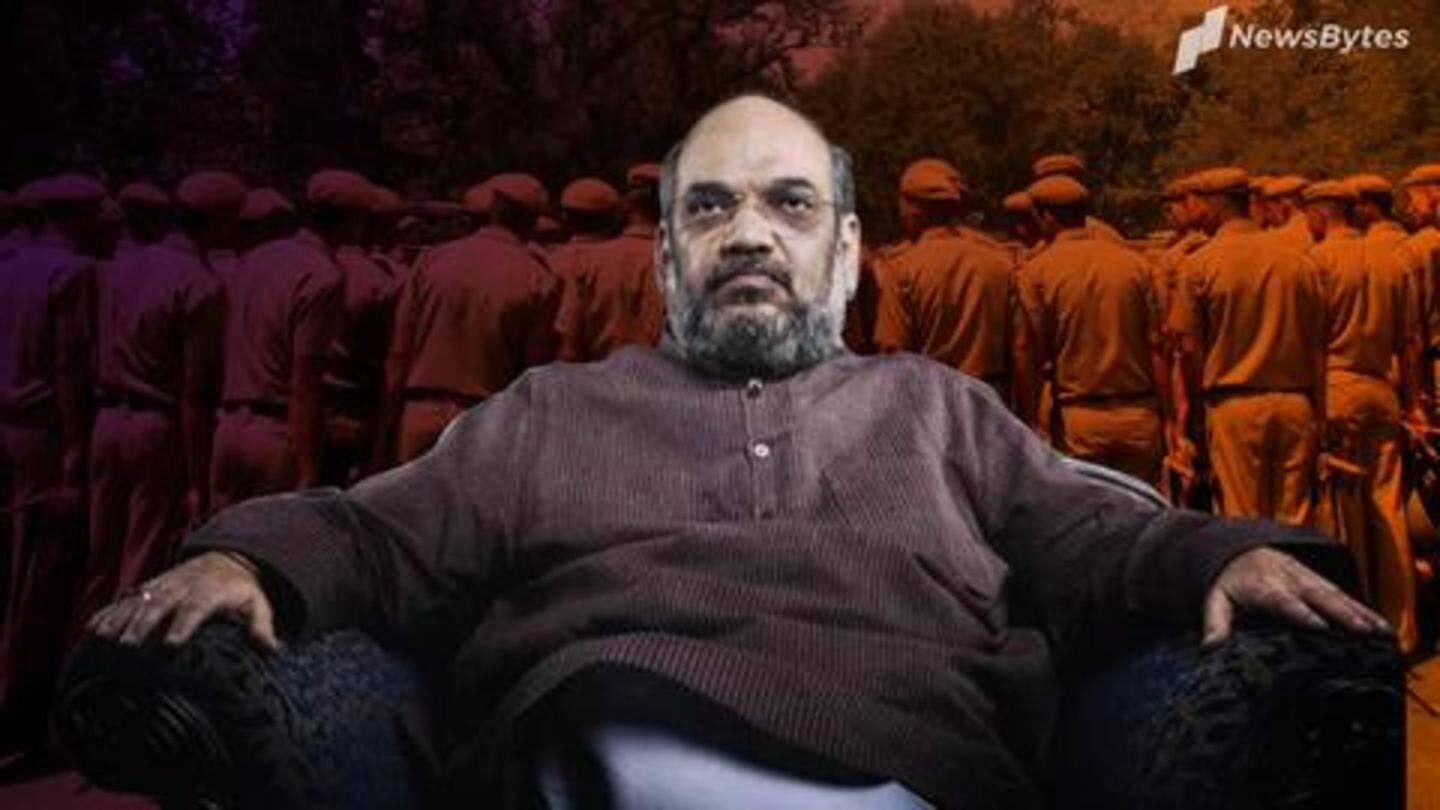Implementing Citizenship Act not a choice: MHA tells 'revolting' states
What's the story
In stern words, the Ministry of Home Affairs (MHA) has told states that implementing the Citizenship Act is not a choice, and they will have to follow the law of the land.
This came after Chief Ministers of five states, namely Punjab, West Bengal, Kerala, Chhattisgarh, and Madhya Pradesh, said they will not implement the new law.
Here are more details.
Protest
Why is there anger against the Citizenship Act?
The Citizenship Act will give Indian citizenship to persecuted non-Muslims from Bangladesh, Afghanistan, and Pakistan.
Those who opposed the Bill in the Parliament said it went against the secular nature of India, was bigoted, and was nowhere close to what our forefathers envisioned for this country.
Meanwhile, protests broke out in the Northeast as citizens feared more Bangladeshi immigrants might settle in the area.
Opposition
CMs of states spoke about defying Citizenship Act
After the Bill was passed in the Rajya Sabha on Thursday, Punjab Chief Minister Captain Amarinder Singh announced his state will opt out of the "unethical" law.
His Kerala counterpart Pinarayi Vijayan also called it divisive and claimed the Centre wanted to divert attention from pressing matters.
Similarly, Trinamool matriarch and West Bengal CM Mamata Banerjee said neither CAB nor NRC will be implemented.
Quote
Korbey na, korbey na, korbey na: Mamata
"Passing the law does not mean anything. Implementation will be up to the state government. Our government is here, korbey na, korbey na, korbey na (will not do it, thrice over," Mamata said, according to The Telegraph.
Congress' CMs
Similarly, MP CM said federal structure is at stake
On Friday, Chhattisgarh and MP, both governed by Congress leaders Bhupesh Baghel and Kamal Nath respectively, also joined the bandwagon.
"I cannot help sow the seeds of divisiveness. The federal structure is at stake; the Centre should have consulted with the chief ministers before going ahead with this," Nath said.
And Baghel told his stand will not be different from that of Congress.
Statement
States can't say no to a central law: MHA official
Amid the dissent, a Home Ministry official said states don't have a choice.
"States have no power to say 'no' to a central law, which now comes under the 7th Schedule of the Constitution. No state government is empowered to deny or halt its implementation. Granting citizenship is the Centre's prerogative," the official said.
Interestingly, a senior lawyer named Anupam Lal Das concurred.
Quote
Centre has exclusive domain to frame laws: Das
"There are three lists under the seventh schedule - union, concurrent and state. Centre has an exclusive domain to frame laws on matters falling under the union list and citizenship is one such subject," senior Supreme Court lawyer Das told HT.
Options
They can't defy it, but can delay it
However, Das pointed out that states can delay the implementation citing law and order.
"States can turn around and say they will not conduct any enumeration exercise as a precautionary measure to maintain public order," he explained.
Meanwhile, another lawyer, Sanjay Hegde, said the option of approaching the Supreme Court is always open. He said states have filed civil suits against Centre previously too.
Dismissal
Interestingly, CMs might lose their chairs if they challenge Centre
While some CMs have been condemning the Citizenship Act, it might cost them their power. If a state chooses to disobey a parliamentary enactment, the governor can recommend President's Rule under Article 356 of the constitution.
Though there are provisions to protect the state governments from arbitrary dismissals, citizenship is a Central matter, which means BJP has an upper hand here.
